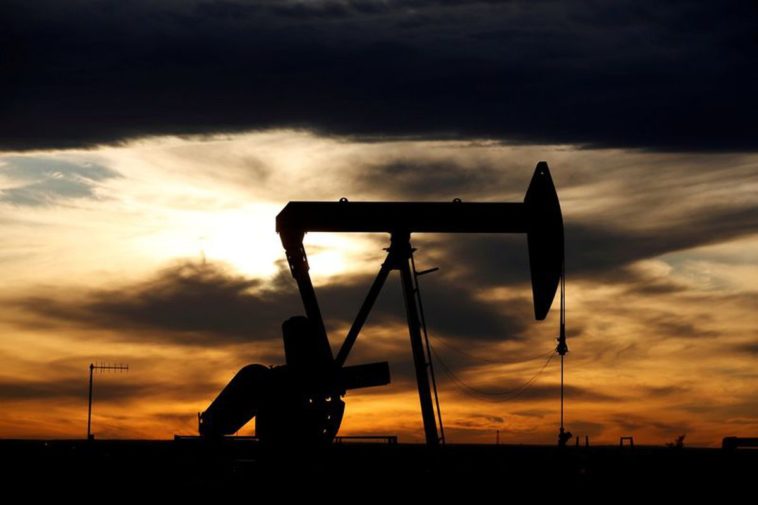UNESCO raises concerns over Vancouver company ReconAfrica’s oil project in Botswana
/cloudfront-us-east-1.images.arcpublishing.com/tgam/UR7E36LG4NOE3CYE25JVLHANAU.JPG)
A Canadian oil company’s drilling plans in a remote region of Southern Africa could endanger two World Heritage sites in Botswana, including the renowned Okavango Delta, according to a UNESCO statement.
The United Nations agency, which maintains a global list of more than 1,100 World Heritage sites of “outstanding universal value,” warned this week that it has concerns about the petroleum project of Vancouver-based Reconnaissance Energy Africa Ltd., or ReconAfrica.
The company announced this week that its main drilling rig, purchased in Houston, has arrived at its site in the Kalahari Desert in eastern Namibia after being shipped across the Atlantic Ocean. It is scheduled to begin drilling operations in early January and insists that its activities will not damage the environment or the heritage sites.
The UNESCO World Heritage Centre said it is “following with attention and concern” the ReconAfrica project, which could affect the Okavango Delta and a second World Heritage Site, Tsodilo Hills. Both sites are in western Botswana, near the Namibian border and near the company’s licensed exploration area in the two countries.
“The World Heritage Committee has always taken a strong position that oil and gas exploration or exploitation activities are incompatible with World Heritage status,” said a statement by Mechtild Rossler, director of UNESCO’s World Heritage Centre.
Oil tumbles as new virus strain revives demand fears
Canadian oil producer Suncor forecasts higher annual production, spending
The Okavango Delta is an inland delta that floods seasonally, attracting one of Africa’s greatest concentrations of wildlife, including large numbers of elephants and lions. Tsodilo Hills contains more than 4,500 rock paintings and other sites that represent thousands of years of human habitation by the Indigenous San and other peoples, with some of the paintings believed to be up to 24,000 years old.
The UNESCO World Heritage Centre said it had talked to officials from the Namibian and Botswanan governments, who responded by pledging to preserve the integrity of the two World Heritage sites.
The Botswanan government said it had modified the licensed area for the oil project “in order to exclude the Tsodilo Hills World Heritage Site, which was previously erroneously included,” the UNESCO statement said.
Claire Preece, a spokesperson for ReconAfrica, said the company will reach out to Ms. Rossler to answer any questions the World Heritage Centre might have.
Ms. Preece provided documents to The Globe and Mail showing that the company is promising to preserve a 10-kilometre buffer zone between its petroleum operations and the Okavango River, and a 20-kilometre buffer zone between its operations and the Okavango Delta.
“We have extended our buffer zones and will take all measures for environmental and social best practices,” Ms. Preece told The Globe in an e-mail.
The company’s documents also described the Tsodilo Hills site as a “no-go zone” for its petroleum work. “ReconAfrica agrees that this area and its buffer zone is an area where petroleum operations should not be conducted,” one document said.
Ms. Preece also provided a letter from the Botswana government, dated Oct. 23, confirming that the company’s exploration licence had originally included the Tsodilo Hills protected area. This inclusion had caused “much international environmental concerns,” the letter said.
“It is therefore in the best interest of Reconnaissance to distance itself from any negative environmental allegations and to let go of this area that cannot be exploited later on in any case,” it said.
The letter requested the company’s permission to reduce its exploration licence area by about 700 square kilometres, about 7 per cent of its original size, to exclude Tsodilo Hills and its buffer area.
Environmentalists have been voicing concern about the oil project for months. Two weeks ago, protestors marched to the UNESCO office in Windhoek, the capital of Namibia, to deliver a petition opposing the oil project. They were pleased by the UN agency’s response.
“We are absolutely delighted that UNESCO issued such a strong caution,” said Frack Free Namibia and Botswana, the environmental coalition that led the protests.
“Our voices were heard: Tsodilo Hills has been excluded from the licensed area,” the group said in a statement on Tuesday.
“We will continue our fight. Our mission is to step ReconAfrica from drilling altogether. Our peoples, ecosystems, water resources and the [Okavango] Delta are not safe until our governments and ReconAfrica cease all work and plans.”
ReconAfrica has raised $23-million in financing for the project. It says the Kavango Basin, in the Kalahari Desert of Namibia and Botswana, could eventually generate 120 billion barrels of oil equivalent, making it one of the world’s biggest oil discoveries in decades.
Environmentalists are concerned that the drilling project could damage the water resources in the biologically sensitive area, while also threatening the traditional San cultural sites. They have repeatedly stated that ReconAfrica is planning to use fracking at the site, although the company denies it.
Your time is valuable. Have the Top Business Headlines newsletter conveniently delivered to your inbox in the morning or evening. Sign up today.
Published at Wed, 23 Dec 2020 00:51:06 +0000





Comments
Loading…